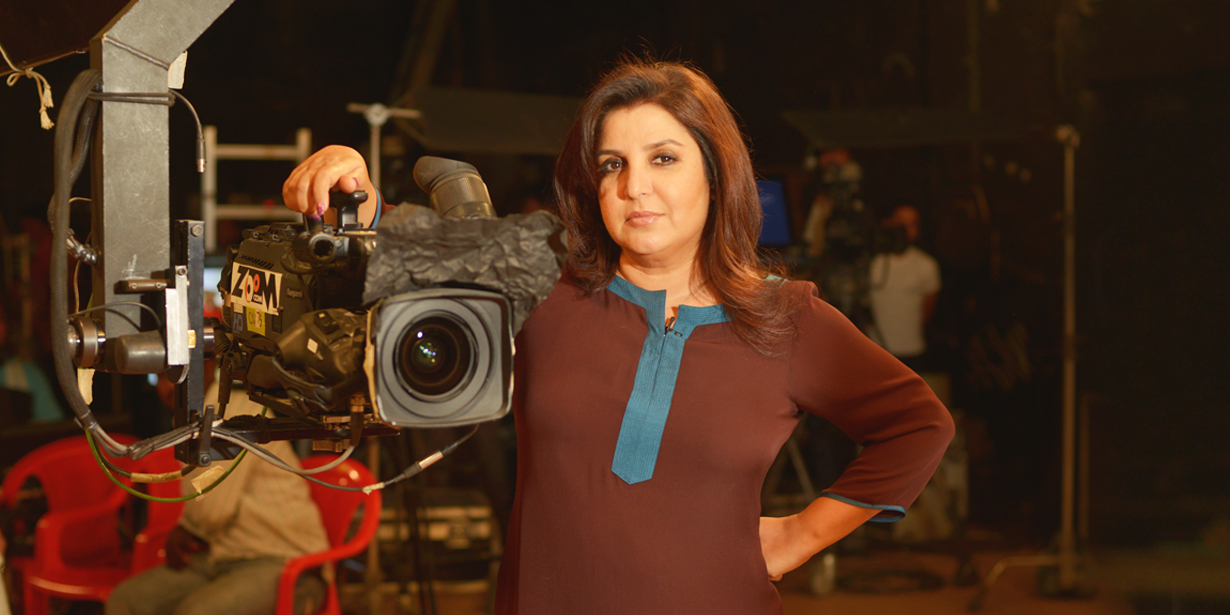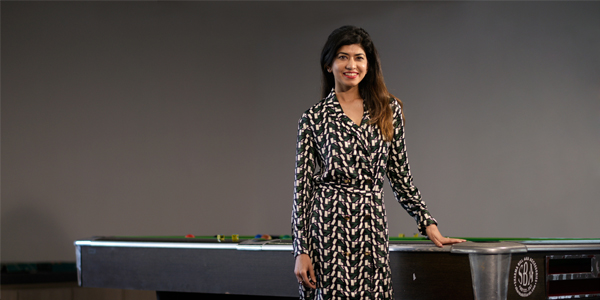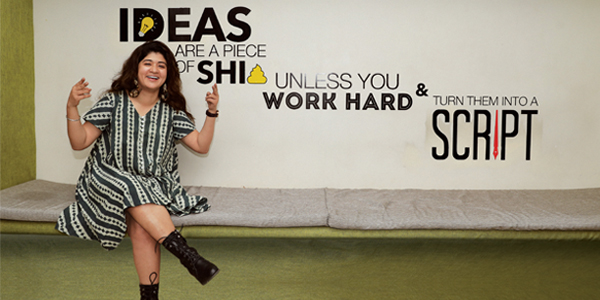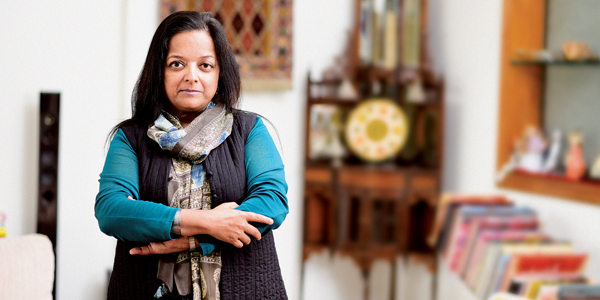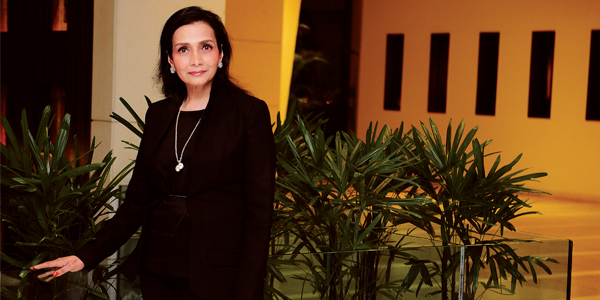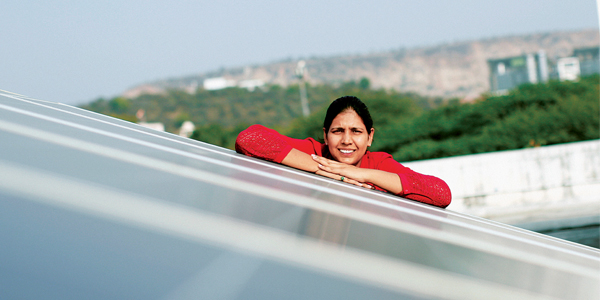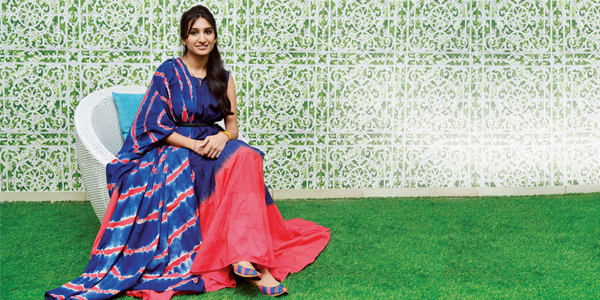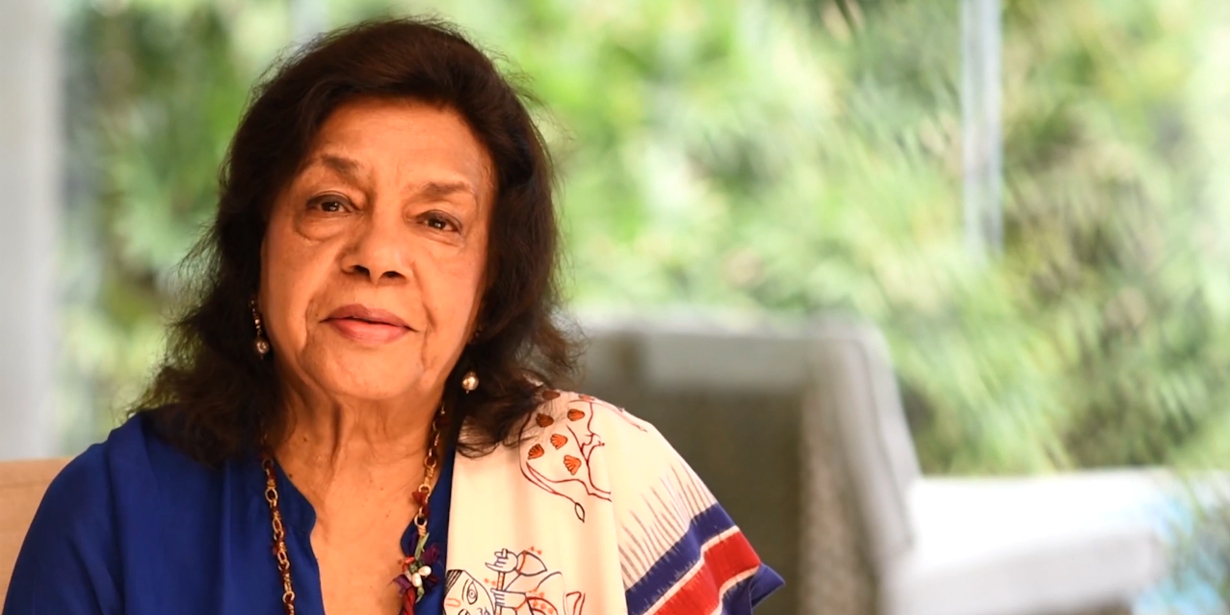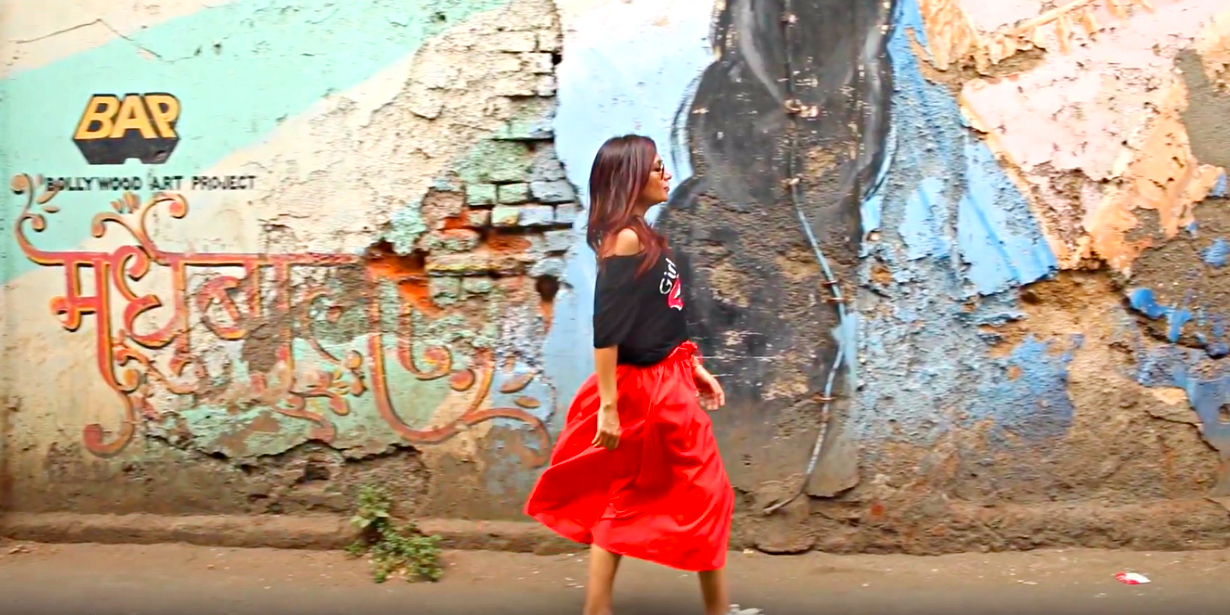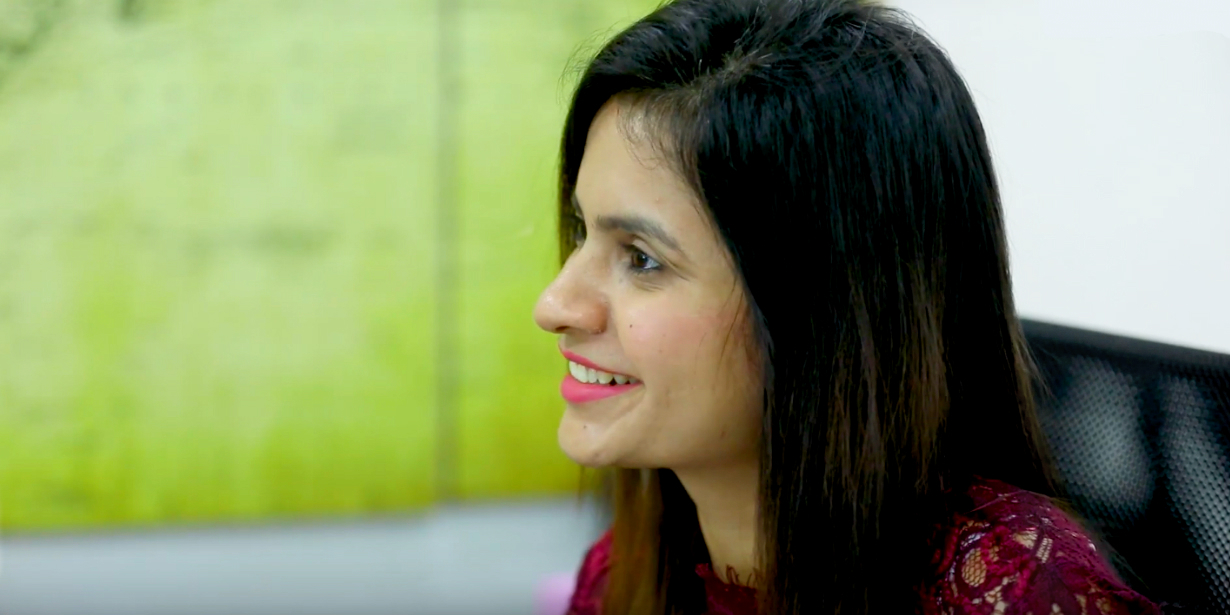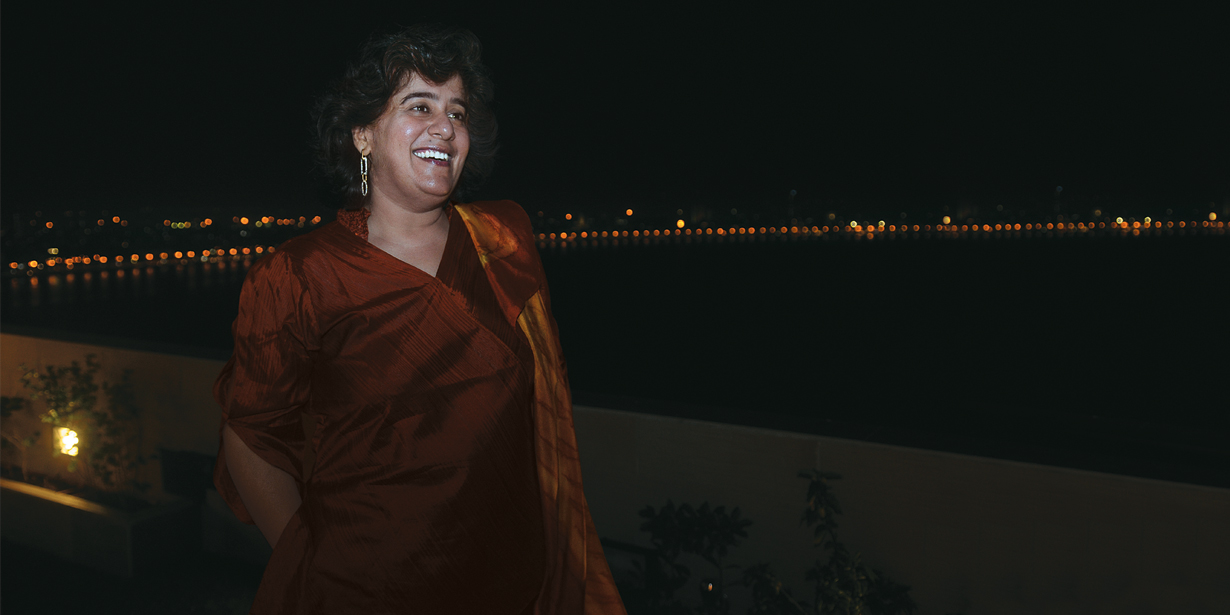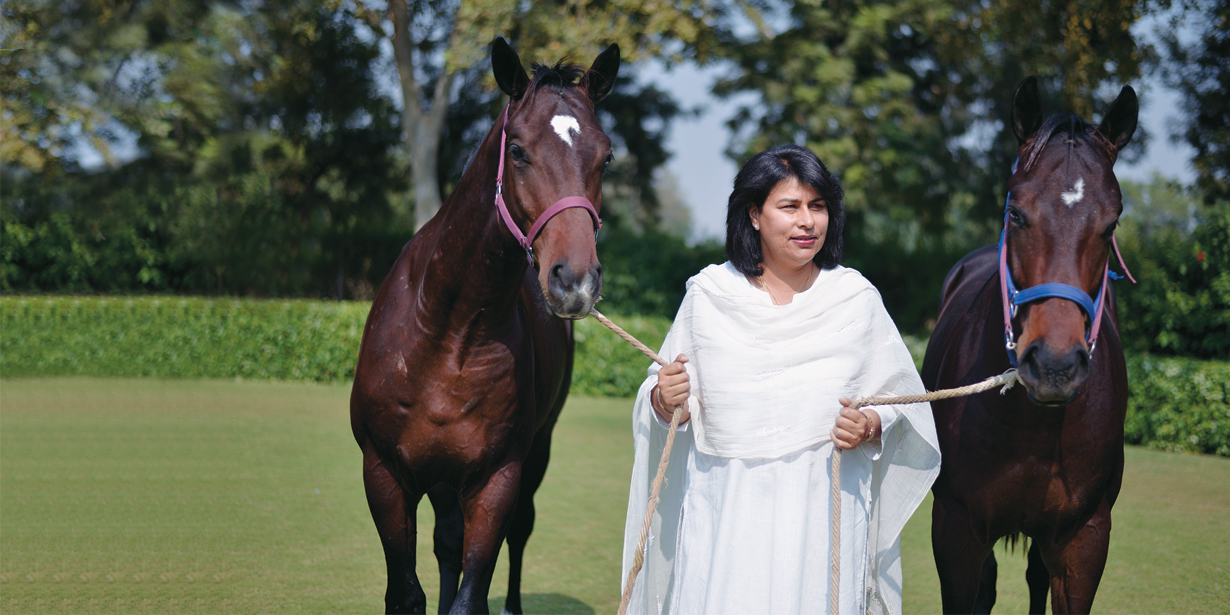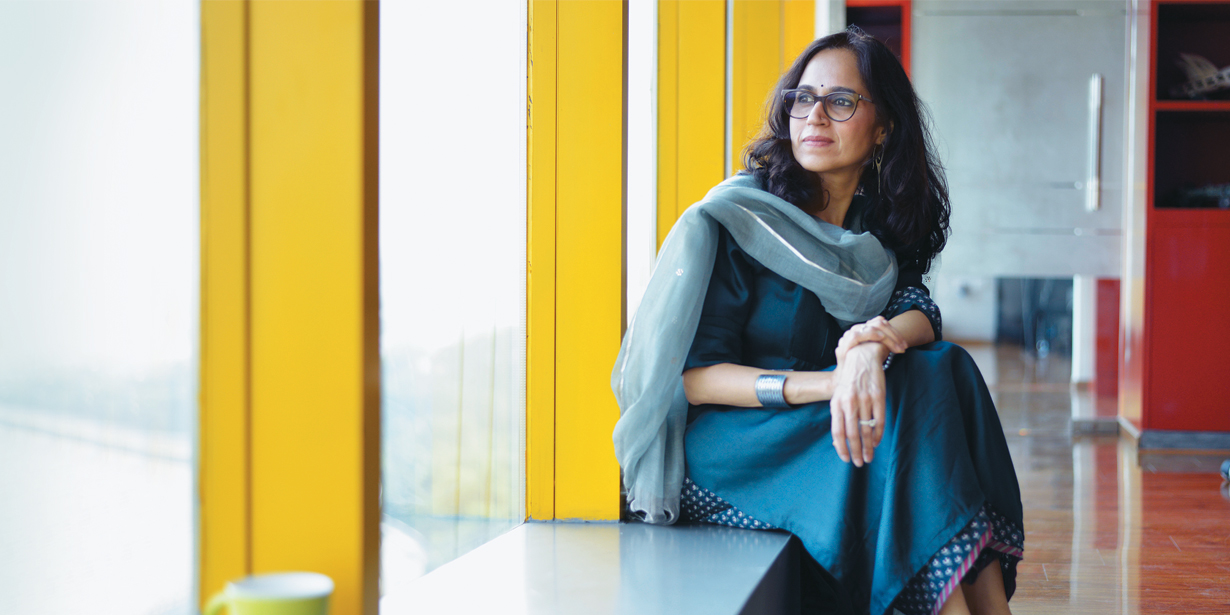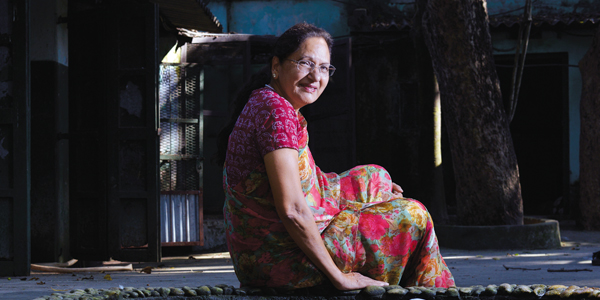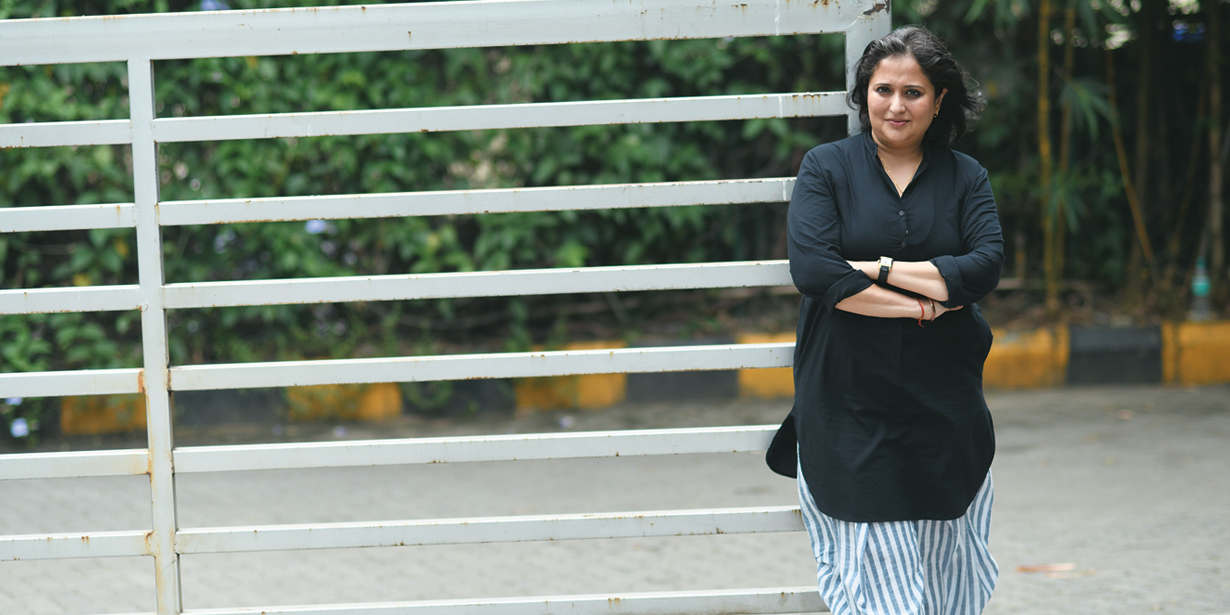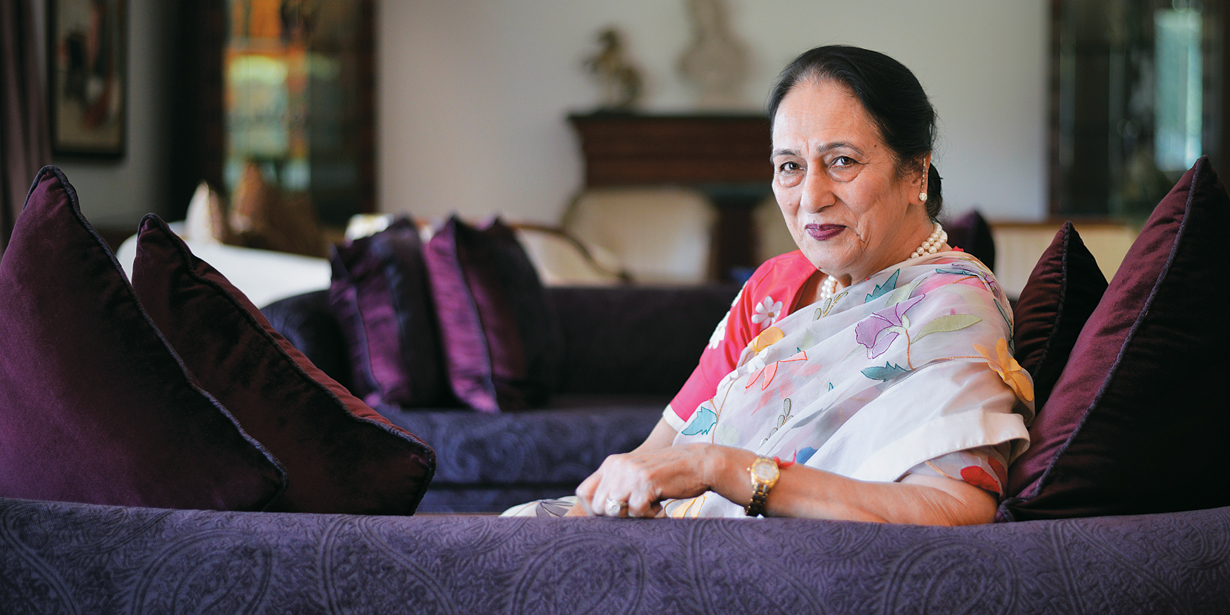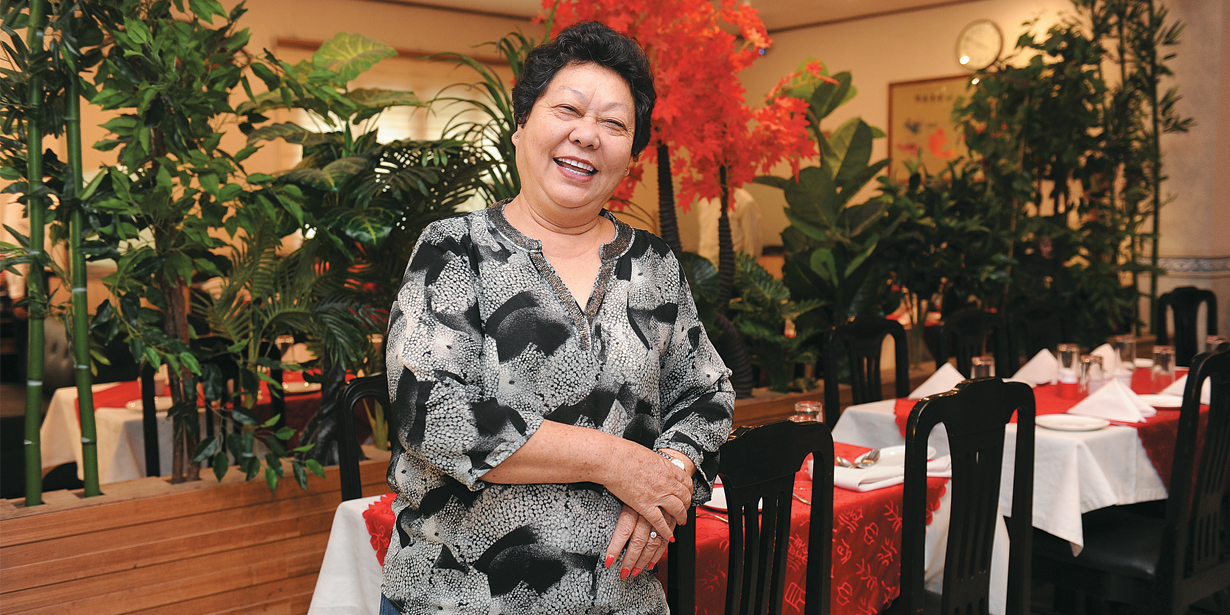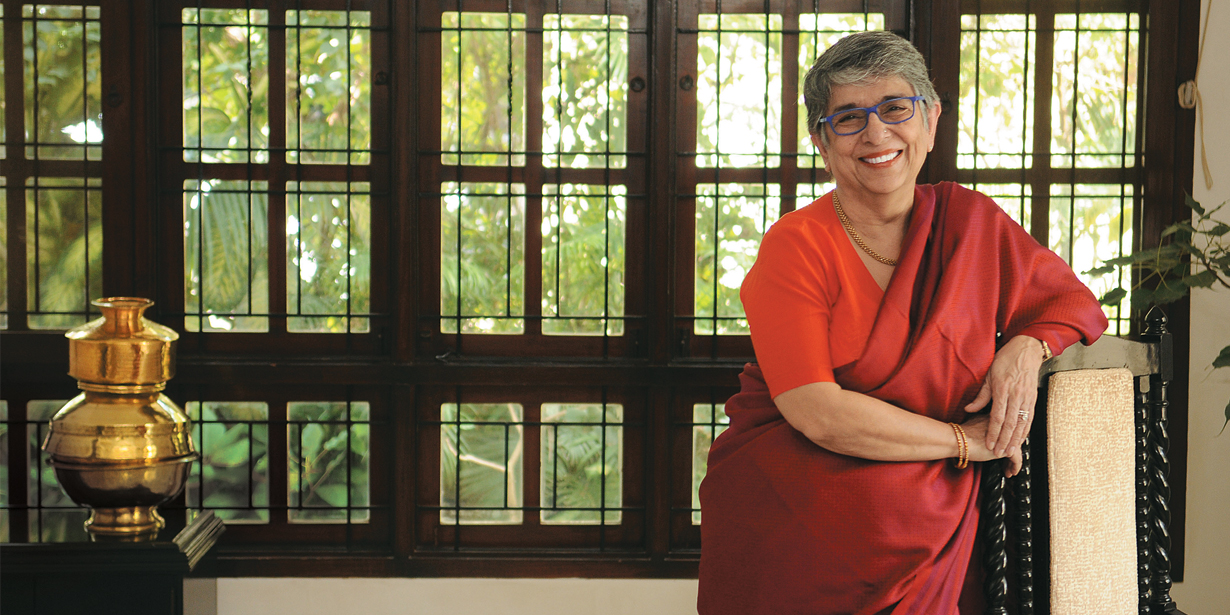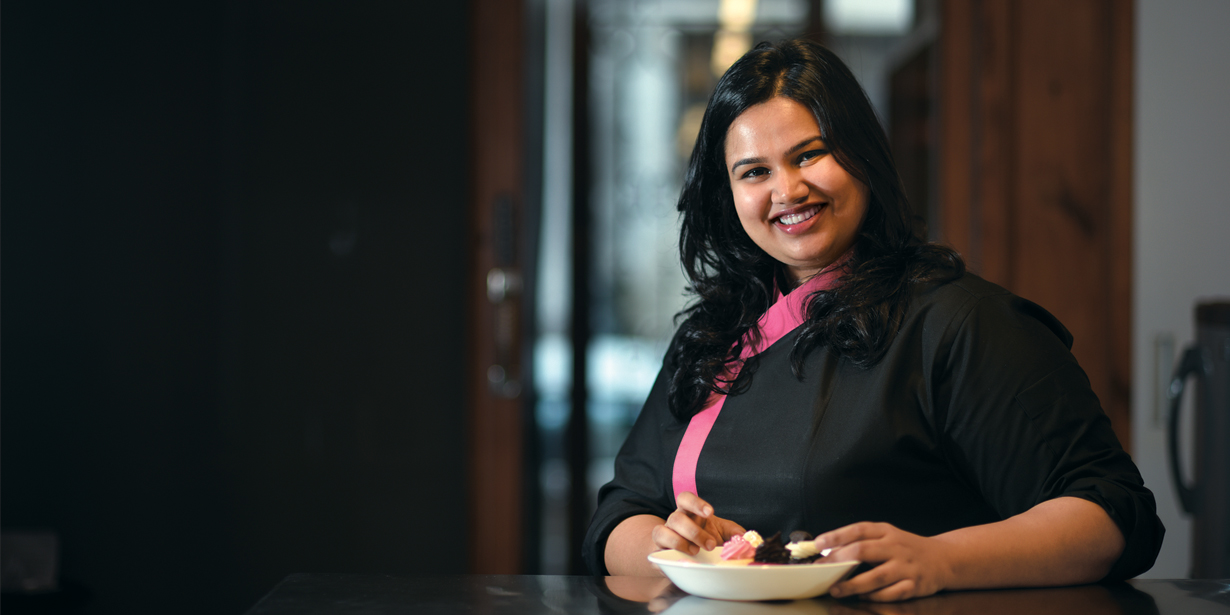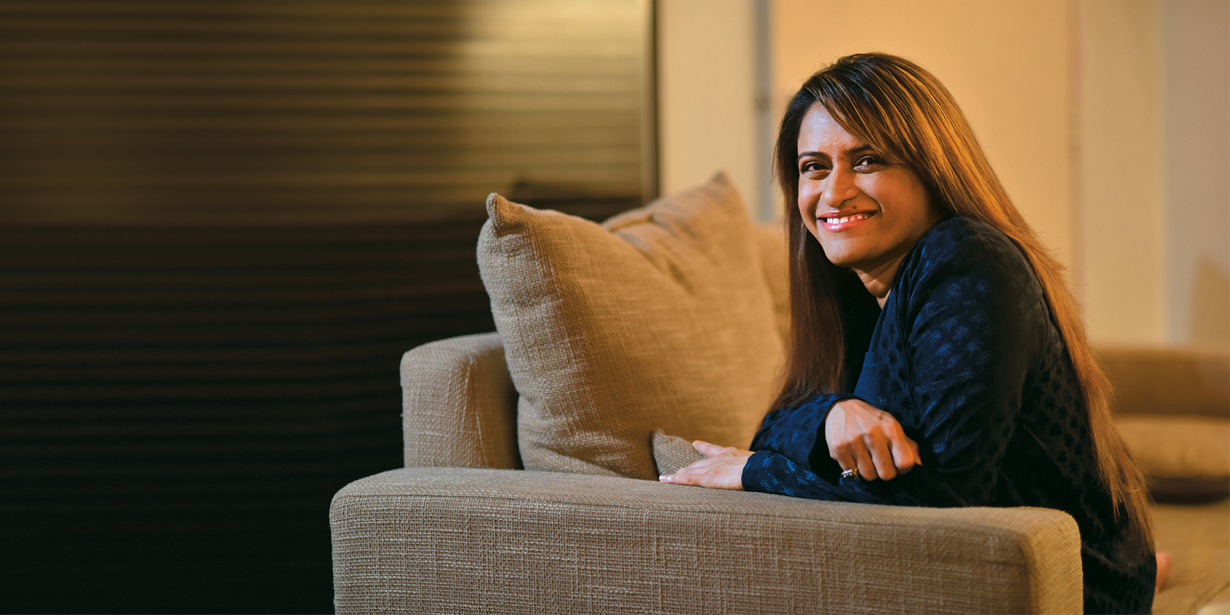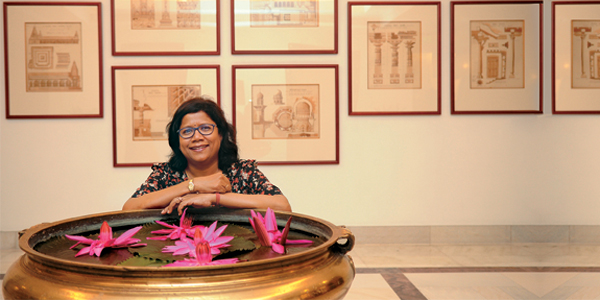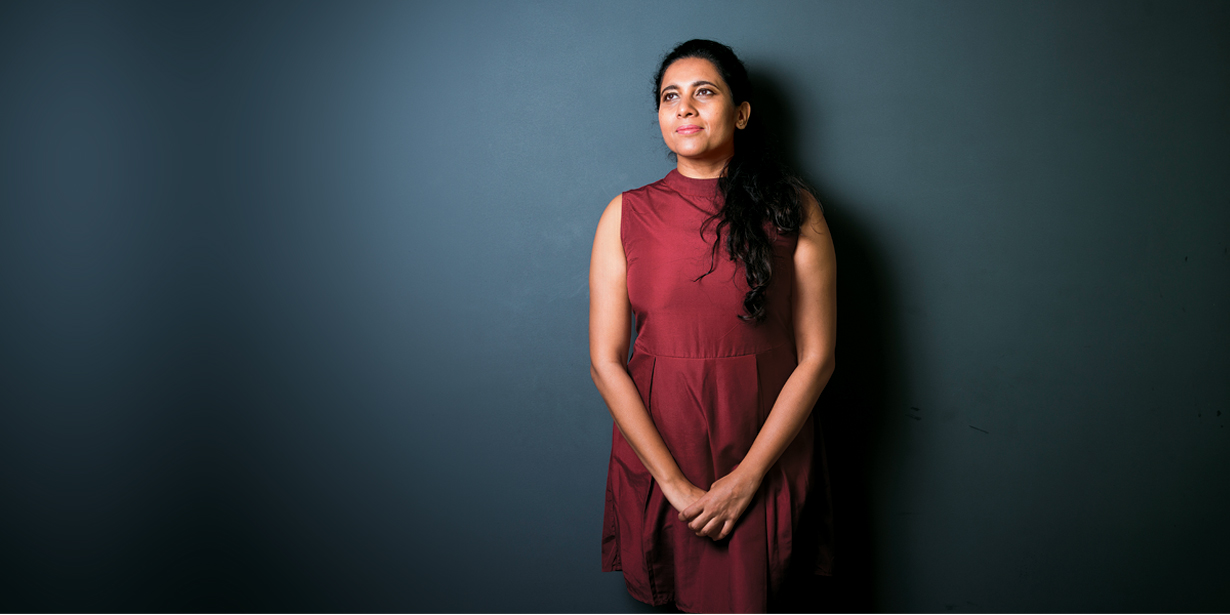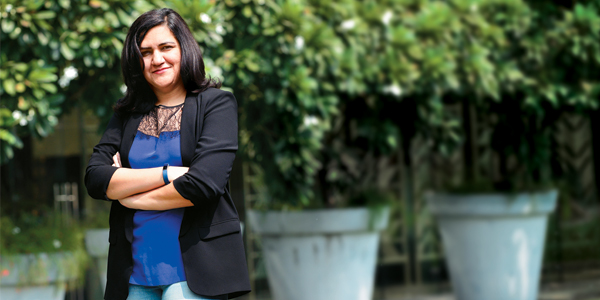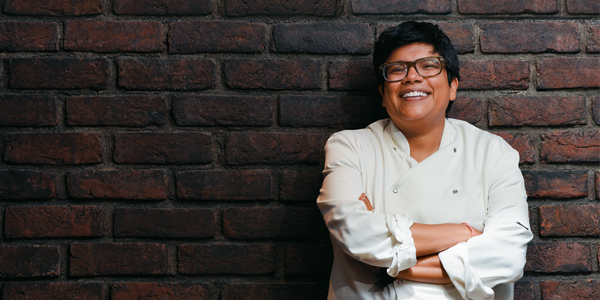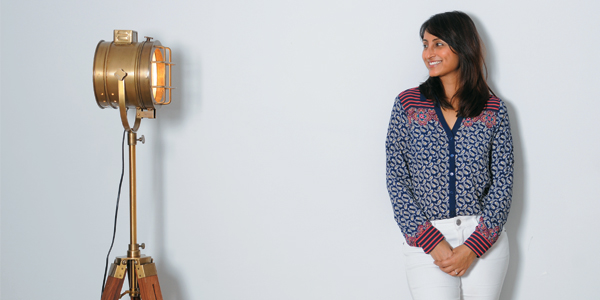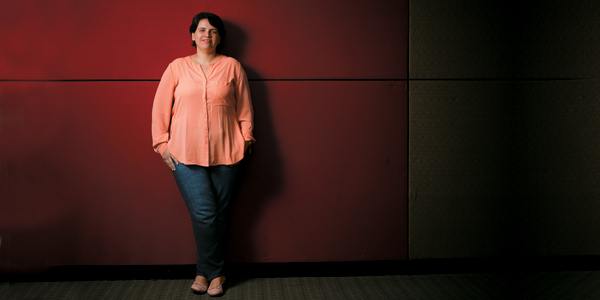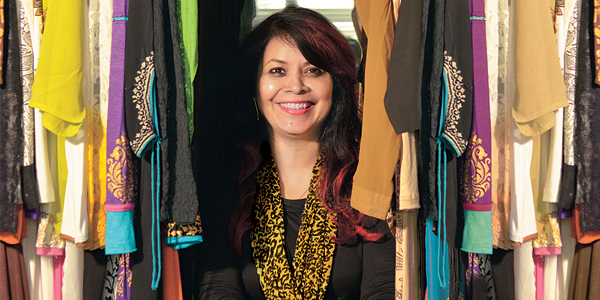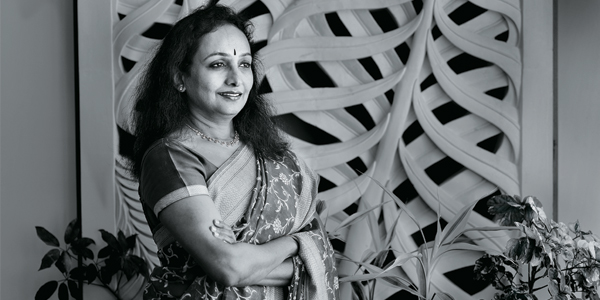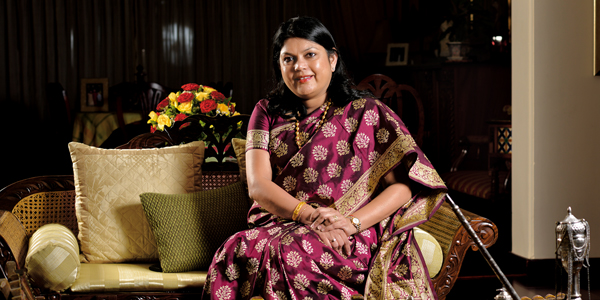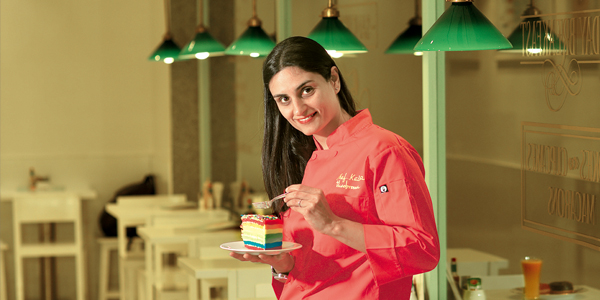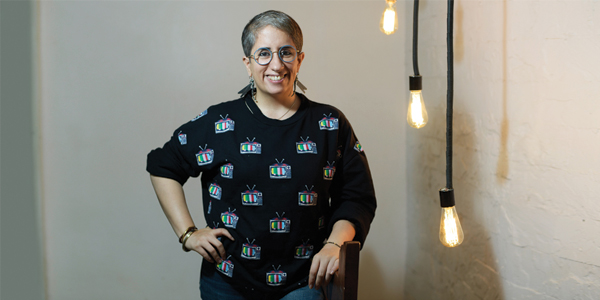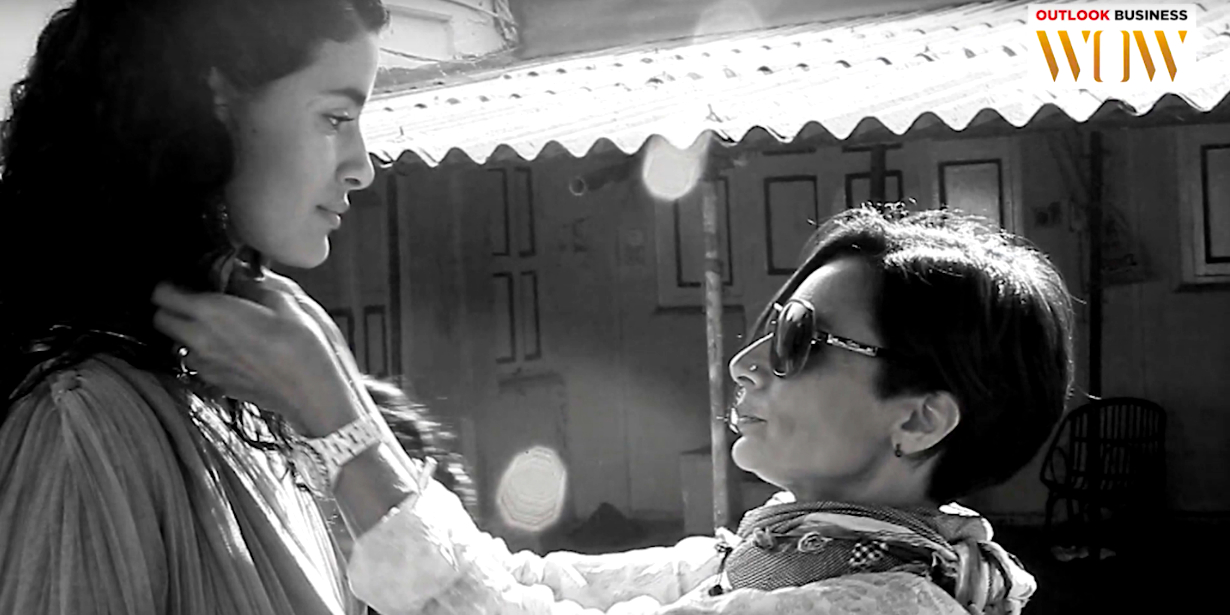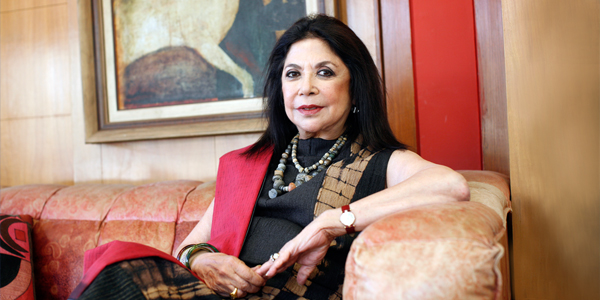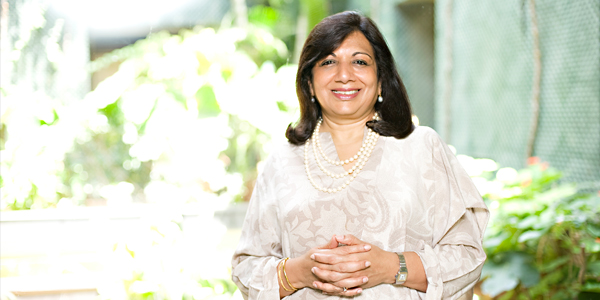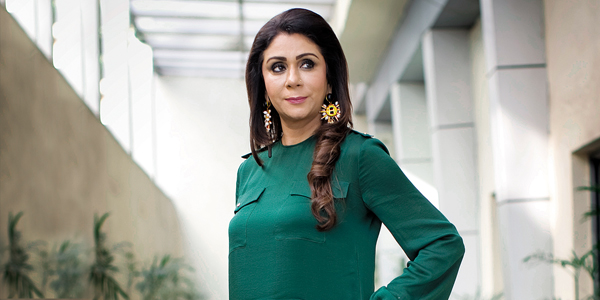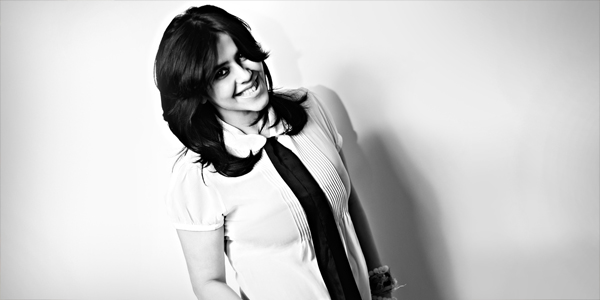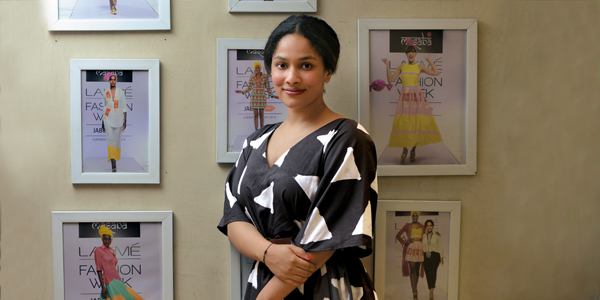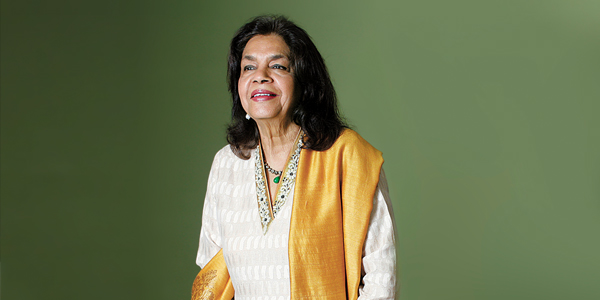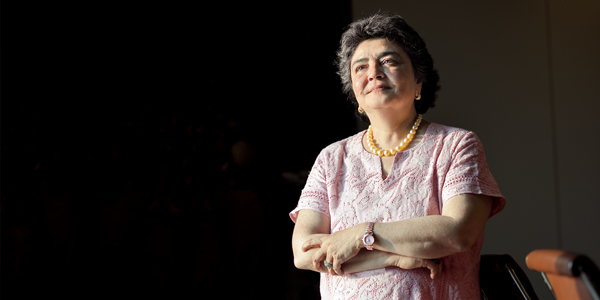How Farah Khan didn’t let box-office flops pull her down – the inside story of the crowd-favourite choreographer-turned-director
She makes the who’s who of Bollywood dance to her tunes both as a choreographer and a director, and more impressively, as a friend. Here’s a walk through Farah Khan’s dream run in Bollywood.
Farah Khan is not an unknown name in India. If you have spent your childhood shaking a leg to songs choreographed by her, you’d understand the feeling of awe that enveloped me when I walked into her penthouse, spread across the top floor of a residential high-rise in suburban Lokhandwala in Mumbai, home of many Bollywood stars. Walking in, one can notice the irritation in her voice as she narrates the corrections in a voice-over script (“Who writes these things?”). The irritation disappears once the job is done and as the apologetic assistant leaves, Khan waves her off with an ‘It’s okay, darling. It wasn’t your fault’.

Best known as someone who has made many a superstar dance to her tunes, 50-year-old Khan has been a celebrated choreographer in the industry in a career spanning 23 years. An ardent Gene Kelly and ’70s Bollywood fan, and a five-time awardee of the Filmfare award for best choreography, Khan decided to move to direction with her first feature film Main Hoon Na. “When I wanted to make a film, I was expressly told not to direct a film. People who wanted me to work with them asked me why I would want to make films when I was doing so well in choreography. That was not advice that I bothered with. Advice can be given for free, and everyone wants to give it,” Khan says in her casual, confident manner. That confidence was in question initially, though.
Finding her way
“I was nervous when I was making my first movie. It took me time to start the movie — nearly three years from the time Shah Rukh Khan said yes and the time we started shooting. But if I didn’t believe I could make a movie and if I wasn’t passionate about it, I don’t think I could have made it.” Main Hoon Na was a hit and went on to become the second-highest grossing Hindi film in 2004. This was followed up with Om Shanti Om, produced yet again by friend and actor Shah Rukh’s production house Red Chillies Entertainment.
There is, however, one piece of advice that Khan decided to take seriously. Her husband, film editor Shirish Kunder, advised her to start her own production house, which is how Three’s Company was born in 2010, named after her triplets — Czar, Anya and Diva. “As was the case when I decided to direct a film, we faced resistance right away. My brother is a moral support to me, more than anything. But otherwise, it is pretty much just Shirish and me. If it weren’t for him telling me that it’s high time that we started our own company, I would have been happy making my own films and choreographing songs for others in the industry.”
Khan isn’t alien to production, though. When she directs a movie, all aspects related to production are under her control. “I have been told I am a producer’s director. I don’t just order things without knowing the costs involved or knowing how to reduce costs. I have always made big-budget movies but I make sure the money put in is reflected in the final product. Sometimes, we see movies made for Rs.100 crore looking like they have been made for Rs.40 crore. In my movies, if it is a Rs.100-crore budget, you will see Rs.90 crore of it on screen, barring any miscellaneous costs or things that we have been lavish about. It seemed to be the most logical step to take as we know the nitty-gritties involved in the making of a Bollywood film.”
The first film made under the Three’s Company banner was Khan’s third feature film, Tees Maar Khan. While the buzz surrounding the film was high, thanks to the popular item number Sheila ki jawani, the movie tanked. Critics didn’t spare it and neither did the audience. The production house’s next release Joker faced a similar fate. Speaking of the period post release, Khan says, “People make hasty decisions when things go wrong and they panic. It could have happened to me after Tees Maar Khan. When you’re down, you’re at your most vulnerable. That’s when most people will get you to sign contracts and take advantage of you. That’s the time you need to believe in yourself and let bad times pass and take stock of what went wrong and try to rectify it.”
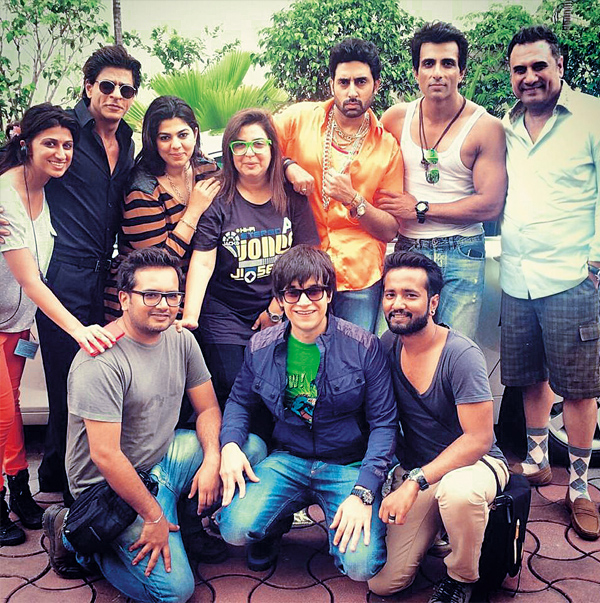
Happy New Year, her recent release as a director, was four years in the making. Amid casting changes and rumours of her career as a director and producer ending making the rounds, Khan released one of the biggest blockbusters of 2014 with opening day figures of Rs.40 crore. It helped prove to her that she could pull off a big-budget film successfully. “It’s not rocket science — it’s pretty straightforward once you get the hang of it. It is all about people management. Even with Happy New Year, there was a lot of in-house support from Red Chillies and Shah Rukh Khan.” Just like her other films, this was also a glossy and big-budget out-and-out entertainer. But Khan doesn’t seem too perturbed by the criticism that follows.
 Learning from failure
Learning from failure
“The people who deal with you — whether it is directors or technicians — will respect you as long as you know your job and what you are talking about. It’s pure business. As long as you’re making money, they don’t care what your gender is. The press is the group that says, ‘Why are you making these full-on entertaining movies? That is what men are supposed to make. Why are you not making thought-provoking, sensitive, niche films about women’s issues?’ That is where the sexism comes in,” says Khan. She is, in fact, armed with explanations for her lavish sets and grand films. “Regardless of the size of the project, we must make sure that it is a decent-looking product. What happens later is not in our hands. It cannot be a shoddy product. You may or may not agree with the story idea — there have been big budget movies that haven’t done well on a story level as well. But all the technical aspects must be in place and the film should have some production value.”
Khan is known to be someone who doesn’t mince her words. Her candour often comes with a straight face or a warm, loud, booming laugh that fills up the room we are seated in. Life, however, hasn’t been easy for her and her family in the past. After her parents parted ways, Khan, along with her brother, comedian Sajid Khan, shuttled between houses and lived a life of lesser means than they both enjoy today. “A childhood spent in poverty is one of life’s greatest inspirations,” she mentions. Her childhood didn’t allow her to be a child for long. “Most people are the key contributors to their own success. If you don’t have the drive to do well, no one can push you to do it.” Not surprising, then, that building a team for the production house was not a problem at all. “People who work for me may not believe in my vision but they do come to work for me because they know they will get paid. After a point, you have to believe in your own vision. People are not funding you because they believe in you. They believe you will multiply their investment.”
There are, of course, doubting Thomases lurking around the corner. That, she says, was one of her biggest challenges. “The initial issue is that once you’re not of use to people and you want to do something for yourself instead of others, they will automatically lose interest and not want to either encourage or support you. Finally, you have to decide if you are going to be a doormat or if you’re going to stand up and do something for yourself. When you want to try something new, people will always resist your ideas.” Does she ever feel like giving up? Not yet, she says. “I don’t really give up but one does need to take a break. Sometimes, maybe standing still and introspecting about what went wrong in a particular situation is what is required.” In fact, she is ready with more plans for the future. Most recently, her celebrity cooking show’s first season, Farah ki Daawat, was a prime-time entertainment show. “More than production, we also want to make (at least my) TV shows. It’s an extension of what I normally do for others,” she adds.
Towards the end of the conversation, she taps her watch and tells me, “What keeps my work and personal life balanced is that I am exceptionally good at time management. I am quite punctual and so I know that I have exactly five minutes before I wrap this interview and leave to pick up my kids from their school.” Being a dancer, choreographer, director and producer certainly requires that level of punctuality, one would say. To that, she responds, “I’ve been running only myself for the past few years and now, my children.”
